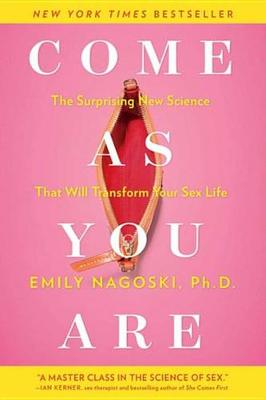Reviewed by jamiereadthis on
It means I haven’t internalized all that much of the crap we’re told about our bodies; it means my own hard work to comprehend and correct the sexual hangups I inherited has had a measure of success. So I really wanted to like this, I did. I’m on board with what this book wants to do. It’s the execution that’s lacking. I was struggling along, willing to adapt to the tone, trying to get past the weirdo condescension, but then the Plato bit ticked me off, and there were hedgehogs and gardens, and it felt not unlike the vibe of an old Brio magazine (the Christian version of Cosmo for girls age 14), and the dialogue was absurd, and it went downhill from there.
Also, to cheerlead the “we’re all normal!” parade, it has a narrow definition of what normal is.
So for the ones who need it: ignore this review, I’m glad this book is there for you. For the ones who find it lacking: you’re not alone. Me too.
Reading updates
- Started reading
- Finished reading
- 4 February, 2020: Reviewed
